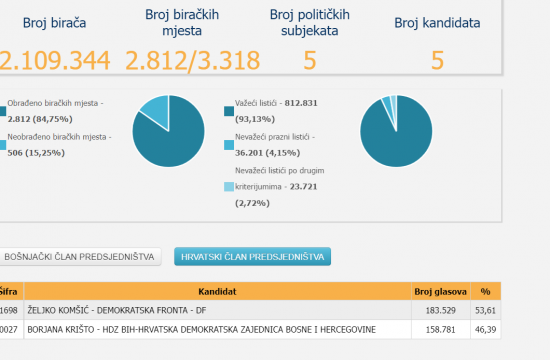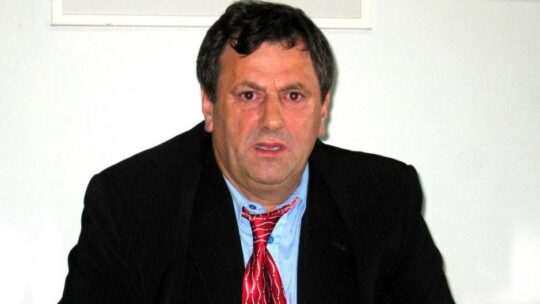
The Dayton Peace Agreement which ended Bosnia’s war was a “historical endeavour”, but it is not set in stone, and the US needs to get more engaged in the country, Christopher Hill, who was one of the negotiators of the 1995 Agreement, told N1 on Wednesday.
“Dayton was never supposed to be some kind of ‘biblical exercise’, it was not something that ‘came from the heavens’, it was something that was negotiated,” said Hill, who is now University of Denver Chief Advisor to the Chancellor for Global Engagement, explaining that it could have been better, but that “at the time, it was the best that could be put together.”
“I don’t think anyone thought it would stay this long, so it’s interesting that it’s still being treated as some kind of holy book,” he said.
Hill said the agreement produced government arrangements which “became more complex than they should have been,” with “too many levels of governments,” and he said it could “be reformed and streamlined.”
Nevertheless, Hill said Bosnia as a state is “functional” with the agreement.
“I hear a lot about it not being functional. Believe me, I’ve been to some not functional countries, and I know the difference,” he said.
He did, however, point out that there are “some problems in the decision-making” process that “absolutely need to be addressed internally” in order to make a country more functional and a better candidate for Euro-Atlantic integration.
Hill also commented on an initiative announced by the main Bosniak party in the country, the Party for Democratic Action (SDA), which said it will challenge the name of Bosnia’s Serb-majority semi-autonomous entity, Republika Srpska (RS), arguing that it discriminates against the other ethnic groups living there.
“I remember when this (the name Republika Srpska) was proposed, nobody really liked it,” he said, explaining that “it was essentially proposing of a republic within a republic, so I’m not surprised that we’ve come to a point where people are talking about changing it.”
It would have to be changed through some kind of “political arrangement,” which is going to require a lot of work, he said.
Hill said that there is not enough attention being paid to Bosnia, and there should be more engagement there by the US.
“I don’t think the structures within the (US) State Department are not fully filled,” so “we don’t have a person with a mandate to try to fix things,” he said. “I think it was a historical endeavour, what we did in Dayton, but I think we needed to stay with it, and I don’t think there has been enough of this follow-up.”
Hill said he sees a future of Bosnia within the EU.
“I think that the visit of the three members of the Presidency (to Brussels) was very important, and I think it’s important to remind the Europeans, and, frankly, to remind the Americans, of the unfinished work of our endeavours in places like Dayton.”
He also touched upon Bosnia’s path toward NATO membership.
“NATO does not like to bring in a country’s own problems, so Macedonia was kept out of NATO because it had a problem with Greece, that problem has been resolved and now Macedonia is coming in,” he said, explaining that the same principle should apply to Bosnia.
Bosnian Serb representatives have voiced strong opposition to the country entering NATO, while Bosniaks and Croats support membership in the alliance.
“Rather than worrying about the Serbs, I think Bosnians should worry about what the Bosnians need to do (for Bosnia) to be a better candidate,” Hill said.





